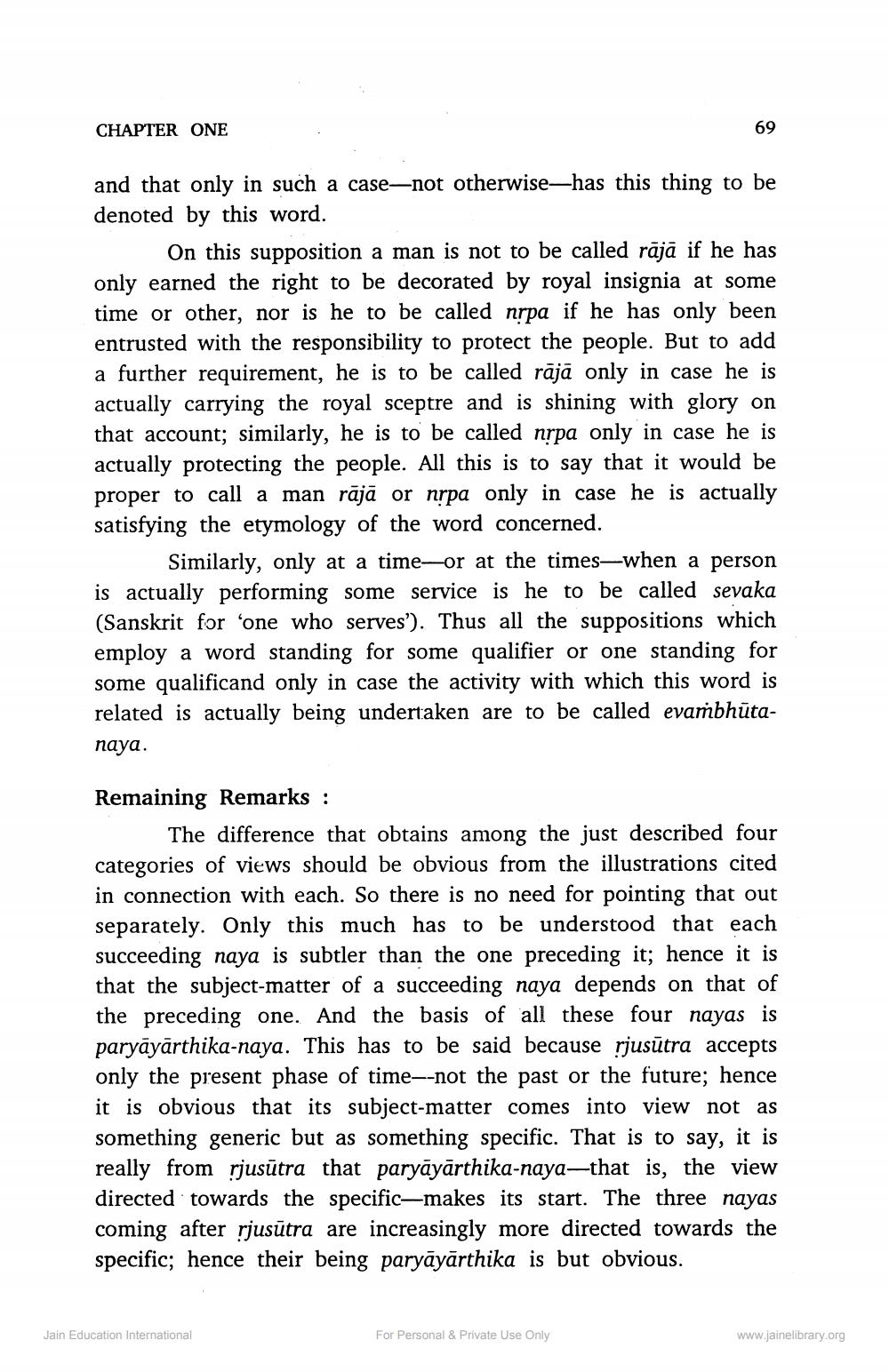________________
CHAPTER ONE
69
and that only in such a case—not otherwise—has this thing to be denoted by this word.
On this supposition a man is not to be called rājā if he has only earned the right to be decorated by royal insignia at some time or other, nor is he to be called nrpa if he has only been entrusted with the responsibility to protect the people. But to add a further requirement, he is to be called rājā only in case he is actually carrying the royal sceptre and is shining with glory on that account; similarly, he is to be called nrpa only in case he is actually protecting the people. All this is to say that it would be proper to call a man rājā or nrpa only in case he is actually satisfying the etymology of the word concerned.
Similarly, only at a time—or at the times when a person is actually performing some service is he to be called sevaka (Sanskrit for one who serves'). Thus all the suppositions which employ a word standing for some qualifier or one standing for some qualificand only in case the activity with which this word is related is actually being undertaken are to be called evambhūtanaya.
Remaining Remarks :
The difference that obtains among the just described four categories of views should be obvious from the illustrations cited in connection with each. So there is no need for pointing that out separately. Only this much has to be understood that each succeeding naya is subtler than the one preceding it; hence it is that the subject matter of a succeeding naya depends on that of the preceding one. And the basis of all these four nayas is paryāyārthika-naya. This has to be said because rjusūtra accepts only the present phase of time--not the past or the future: hence it is obvious that its subject-matter comes into view not as something generic but as something specific. That is to say, it is really from rjusūtra that paryāyārthika-naya—that is, the view directed towards the specific-makes its start. The three nayas coming after rjusūtra are increasingly more directed towards the specific; hence their being paryāyārthika is but obvious.
Jain Education International
For Personal & Private Use Only
www.jainelibrary.org




